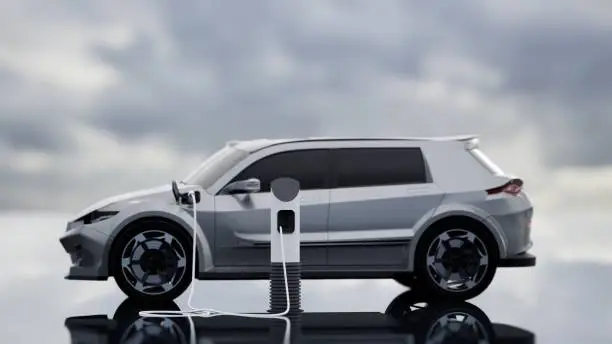Electric vehicle markets have skyrocketed for the last two years, with a 40% increase in global markets. This is because of the efficiency and many benefits of electric vehicles. Before buying a new electric vehicle, it’s good you get all the facts about electric cars so you don’t believe in the myths and misconceptions. Today, the world of technology and automation has become a new source of automobiles with high demand. Unlike gasoline cars, many Americans are shifting to electric vehicles because they are less costly. Also, they are environmentally friendly, making them very important. Electric vehicles have low maintenance costs since they have fewer moving parts and they use no fuel fossils. Electric vehicles are powered by electricity, and the batteries can last as long depending on usage. Although electric vehicles are considered cheap, millions of Americans can’t afford them. Like any other new tech project, there are still people who have a lot of myths about electric vehicles.
In this article, we state all the facts about electric cars that you need to know.
What are Electric Vehicles?

Electric vehicles, also known as battery electric vehicles (BEV), use electric motors to power cars instead of fuel combustion. In other words, the electric energy stored in the battery packs powers the motor. The batteries are charged by connecting the charger to the electric power source. Electricity production can pollute the environment, but according to the U.S. Environmental Protection Agency, all-electric vehicles have zero emissions because they don’t produce direct exhaust. Buying a new electric vehicle is expensive, but when it comes to maintenance, it’s less costly, plus you save a lot on fuel. When charging your EV, there are charging stations where you can charge your batteries until they are fully charged. As more people choose to own an EV, there have been some advances, such as you can own your home charging stations for your car. This is a time saver since you can charge your EV overnight or at your convenience.
Types of Electric Cars
Battery Electric Vehicles (BEV)
This is a car that is powered by a 100% electric motor. It requires plugging to the power source through your home or any charging station. The power is stored in the battery and depleted as you run your car. Several battery electric vehicles in the market can go for 200-300 miles when fully charged. Fueling can take 4-6 hrs with a level 2 charger and 30 min on a fast charge. This will also depend on the size of the battery. An example is Tesla model y,3 and S Plaid, BMW i4, GMC Hummer EV, and Nissan Leaf
Plug-In Hybrid Vehicle (PHV)
A combination of gasoline engines and electric motors powers these cars. The vehicle is plugged into an electric source to charge and can run for 15-60 miles. The only difference with the other electric cars is that once the electric batteries are depleted, the gasoline engine picks up immediately, and the car will run like it’s fully powered by fuel. The combination of gasoline and electric motors can make you hit 350-600 miles, much better than gasoline cars. Refueling is easy because you can use level 1 (120V) or 2(240V) charging. Or if it’s gasoline, it takes less than 10 min at the gas station. An example is Toyota Prius
Hybrid Electric Vehicles (HEV)
Both electric motors and gasoline power engines power hybrid EVs through the electric energy stored in the battery packs. HEVs can’t be plugged into an EV charger like PHV because the battery is charging from the engine and regenerative engine. The car engine can be smaller considering the additional generated power by the electric motors. The braking energy is usually lost as heat in the brake pads and rotors. HEV can’t use a similar charger to plug in the grid to recharge, and that charges with EVGo. An example is Toyota Prius.
Fun Facts about Electric Cars
Owning an electric car in 2023 is fascinating, considering how the global economy has been affected by covid 19. It’s a good thing despite the pandemic, many have the survival tactic, and they are doing great. Today there are many myths about electric cars that aren’t true and some are… Let’s enlighten you on all the facts about electric cars: their performance, speed, maintenance, and re reliability.

1.Gas emissions associated with electric cars are lower than the gasoline-powered vehicles
Studies indicate that, during the manufacturing of EVs, there is a high percentage of carbon pollution, unlike gasoline cars. The high carbon pollution results from the additional energy required when making an Ev battery. The total GHG of an EV associated with driving, manufacturing, and charging is lower than when associated with gasoline cars. Electric vehicles have zero tailpipe emissions and are responsible for fewer GHGs while operating.
2.Electric Cars are Not a Modern Invention
According to the history of electric cars, the first full-sized electric car was made in 1832 by Scottish inventor Robert Anderson. This EV was powered by non-rechargeable power cells and was the first crude prototype of its kind.
3.China owns nearly half of Electric vehicles
Among the 40% increase of EVs in the global market, China outshines other countries by having nearly half of electric vehicles. It is the biggest market for EVs. In 2019, China made more than 1.2 million sales of electric vehicles. China owns over 3.4 million Battery Electric vehicles.
4.Electric vehicles are more efficient and reliable. Upto 80% of the battery is used to power the car, unlike gasoline cars that use 14-26%
5.Tesla is the most popular or largest EV manufacturer. Although many manufacturing companies have made Evs, Tesla today is the most well-known car manufacturer of electric vehicles. Some other automakers are NISSAN.
6.Electric vehicles aren’t that expensive.
Buying a new one might cost you a lot. But as you get to use it you understand it’s way cheaper compared to gasoline cars. This is because of low maintenance costs. As more cars are being manufactured, the price of EVs has been decreasing, making them affordable to many Americans.
7.Electric vehicles have tons of benefits, such as;
- they produce less noise pollution
- They are quick to accelerate, and they have instant torques
- They have Lower operating and maintenance costs
8.They are fast
Electric vehicles are considered faster than gasoline cars since the size of the car battery makes it 10-20% heavier than gasoline cars.
9.William Morrison was the first American who invented electric vehicles in 1890. He created an Ev that could run 14 mph and accommodate 6 passengers.
10.The fast ever electric car was made in Uk
They are among the electric car fun facts you need to know. However, there are many myths and misconceptions out there, but it’s a good thing we have stated the above. These are the fun facts about electric vehicles that are commonly known and proven to be true. It is your duty to do due diligence to listen to the myths. Don’t let them hinder you from buying your electric car. They come with a lot of happiness, you know. I hope this article will be helpful to you.



